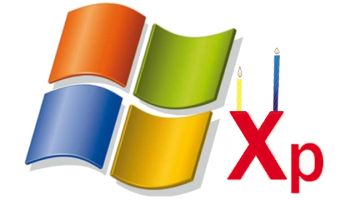

Security researchers have discovered a large number of consumers are still using either unsupported or near end-of-life operating systems.
Kaspersky researchers told Silicon UK they had analysed the anonymised data of operating system use provided by Kaspersky Security Network users (with their consent).
It found that 41 percent of consumers still use unsupported and near end-of-life operating systems.
The Kaspersky survey found that while newer versions of Microsoft operating systems are available, older OS (such as Windows XP, Vista and Windows 7) are still in use by consumers and businesses.
It found that 40 percent of very small businesses (VSBs) and 48 percent of small, medium-sized businesses (SMBs) and enterprises still rely on older systems running at times ancient (in IT terms) operating systems.
Microsoft for example officially ended support for Windows 7 back in 2015, although security updates still continue.
Kaspersky warned that the use of older OS means that no further updates will be issued by the vendor, and this includes updates related to cybersecurity.
But security researchers or cyberattackers may find previously unknown vulnerabilities within these systems. And those flaws may be exploited by hackers.
The Kaspersky data shows that two percent of consumers and one percent of workstations used by very small businesses rely on Windows XP. This operating system was launched back in 2001, and Redmond stopped supporting the venerable OS on 8 April 2014.
The Kaspersky data also found that less than half a percent of consumers (0.3 percent) and VSBs (0.2 percent) still prefer Windows Vista, for which mainstream support ended in March 2017.
Windows 7 is still a popular choice for consumers and businesses, despite extended support coming to an end in January 2020. More than a third (38 percent) of consumers and VSBs, and 47 percent of SMBs and enterprises, still run this OS.
“Statistics show that a significant share of users, both businesses and individuals, still use workstations running an outdated or approaching end of lifecycle OS,” said Alexey Pankratov, enterprise solutions manager at Kaspersky.
“The widespread use of Windows 7 is concerning, as there is less than six months to go until this version becomes unsupported,” said Pankratov. “The reasons behind this lag vary depending on the software in place, which may be unable to run on the newest OS versions, to economic reasons and even just down to habit. Nonetheless, an old unpatched OS is a cybersecurity risk – the cost of an incident may be substantially higher than the cost of upgrading.
“This is why we recommend that customers migrate to supported versions and ensure that additional security tools are in place during the transition period,” he said.
Kaspersky recommends that businesses and consumers always use an up-to-date version of the OS with the auto-update feature enabled.
Do you know all about security? Try our quiz!
Denial from TSMC, after multiple reports it was in talks with Intel over a joint…
CEO Tim Cook talks to Trump official, as IDC notes China's smartphone market growth, and…
Another big name chip maker expects a hefty financial charge, after the US tightened rules…
More bad news for Google. Second time in less than a year that some part…
Federal office that tackled misinformation and disinformation from hostile nations is closed down, after criticism…
After Nvidia admits it will take $5.5 billion charge as Trump export limits of slower…